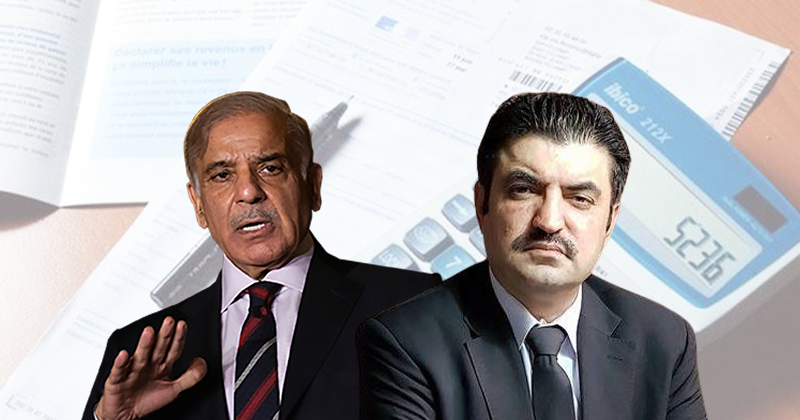What the Budget 2019-20 Brought for Pakistan’s Real Estate Sector?
CONTEXTUALISING THIS DEVELOPMENT
Federal Minister for Revenue Hammad Azhar, during his presentation for the budget 2019-20 in the National Assembly, notes that The previous Government had focused primarily on increasing the capacity of the FBR to generate revenues through a range of activities which, famously, included the introduction of ' non-filer ' status for tax-free enrollees who subsequently received higher tax penalties.
The Minister indicated that the present state would not follow the same strategy, but would extend the tax basis and document the economy in its modus operandi.
Addressing the Parliamentarians, Minister Hammad Azhar said,
“Hence, the federal government has decided to remove the restrictions imposed on the purchase of a fixed property”.
Below are the real estate tax highlights of the new budget, along with a concise analysis of what they can mean for the work of both the industry and its members.
FBR Property Valuation Rates to Be Raised To 85% Of Market Value
The following measures have been proposed in the current budget for getting closer towards:
Previously, the Capital Gains Tax (CGT) on real estate was calculated individually; depending on the level of the property's holding – up to three years.
But now the income ensued through capital gains would now be brought under the government’s normal income tax regime, and taxed at normal rates.
The net present value of the property continues to increase each year based upon inflation rates.
Below is an example to elaborate it further:
At the beginning of 2017, a person purchases a 5-marla plot for PKR 2000,000,000. Let us suppose that the inflation rate stays steady at 7 percent each following year. The property's NPV will then amount to PKR 2 140.000 in 2018; PKR 2 2 289.800 in 2019 and PKR 2 450.086 in 2020.
Then if after three years the person sells the property for PKR 2 500 000, this is how he calculates his actual earnings:
The real profits in respect of the revenue of the person shall, therefore, be calculated at PKR 49,914 and taxed at that price. The proposal, on the other side, provides the following for the calculation of capital profits: In the case of plots
IN SUMMATION…
Although these modifications will have a direct impact upon the workings of the real estate sector, the state has also implemented a series of other monetary measures aimed primarily at broadening the tax base and forcing the public to submit revenue tax reports immediately.
However, all this makes it very clear that the public receives all of these tax/sanction changes and that they actually impact the dynamics of the real estate sector across the country. It is a matter of course. However, one thing is certain: The efficacy of the government in the implementation by wisely organized executive actions of these laws is the most significant factor determining the socio-political sustainability of this post-budget era.
https://www.rightdeed.com/blog/832/budget-for-pakistans-real-estate-sector-2019-20
CONTEXTUALISING THIS DEVELOPMENT
Federal Minister for Revenue Hammad Azhar, during his presentation for the budget 2019-20 in the National Assembly, notes that The previous Government had focused primarily on increasing the capacity of the FBR to generate revenues through a range of activities which, famously, included the introduction of ' non-filer ' status for tax-free enrollees who subsequently received higher tax penalties.
The Minister indicated that the present state would not follow the same strategy, but would extend the tax basis and document the economy in its modus operandi.
Addressing the Parliamentarians, Minister Hammad Azhar said,
“Hence, the federal government has decided to remove the restrictions imposed on the purchase of a fixed property”.
Below are the real estate tax highlights of the new budget, along with a concise analysis of what they can mean for the work of both the industry and its members.
FBR Property Valuation Rates to Be Raised To 85% Of Market Value
The following measures have been proposed in the current budget for getting closer towards:
- FBR valuations of properties will be raised to 85% of their market values.
- Property owners were formerly permitted to register their immovable assets with an additional 3 percent tax rate on the currency difference between DC and FBR rates. After the implementation of the FBR prices during the term of the former government this' amnesty scheme ' provision has been announced. In practical terms this allowance meant that after a 3 percent extra tax on the figure has been deposited, a property holder was no longer required to explain the source of financing the difference between the DC value and the FBR value of a particular piece of real estate.
- The rate of WHT levied on the purchase of property has been reduced from 2% to 1% of its total value.
- Previously, the WHT was only imposed on the purchase of property valued higher than PKR 4 million. This ceiling has been abolished. WHT will now be imposed on all properties; irrespective of their value.
- Previously, no WHT was collected on the sale of the property if it was sold after three years of purchase. This time limit has now been raised to five years. Any property sold within five years of purchase will be taxed at a rate of 1% of its total value.
Previously, the Capital Gains Tax (CGT) on real estate was calculated individually; depending on the level of the property's holding – up to three years.
But now the income ensued through capital gains would now be brought under the government’s normal income tax regime, and taxed at normal rates.
The net present value of the property continues to increase each year based upon inflation rates.
Below is an example to elaborate it further:
At the beginning of 2017, a person purchases a 5-marla plot for PKR 2000,000,000. Let us suppose that the inflation rate stays steady at 7 percent each following year. The property's NPV will then amount to PKR 2 140.000 in 2018; PKR 2 2 289.800 in 2019 and PKR 2 450.086 in 2020.
Then if after three years the person sells the property for PKR 2 500 000, this is how he calculates his actual earnings:
| The price paid at the time of purchase | PKR 2,000,000 |
| Price received at the time of sale | PKR 2,500,000 |
| NPV at the time of Sale (Three years later) | PKR 2,450,086 |
| Actual Gains | 49,914 |
The real profits in respect of the revenue of the person shall, therefore, be calculated at PKR 49,914 and taxed at that price. The proposal, on the other side, provides the following for the calculation of capital profits: In the case of plots
- If the plot is sold within the first year of purchase, 100% of the gains will be taxed.
- If the plot is sold after the first year but before ten years of purchase, 75% of the gains will be taxed.
- If the property is sold after 10 years of purchase, no gains tax will be levied.
- If the property is sold within the first year of purchase, 100% of the gains will be taxed.
- If sold afterone year but before the elapse of the fifth year, 75% of the gains will be taxed.
- Gains will not be taxed if the property is sold after five years of ownership.
IN SUMMATION…
Although these modifications will have a direct impact upon the workings of the real estate sector, the state has also implemented a series of other monetary measures aimed primarily at broadening the tax base and forcing the public to submit revenue tax reports immediately.
However, all this makes it very clear that the public receives all of these tax/sanction changes and that they actually impact the dynamics of the real estate sector across the country. It is a matter of course. However, one thing is certain: The efficacy of the government in the implementation by wisely organized executive actions of these laws is the most significant factor determining the socio-political sustainability of this post-budget era.
https://www.rightdeed.com/blog/832/budget-for-pakistans-real-estate-sector-2019-20






































